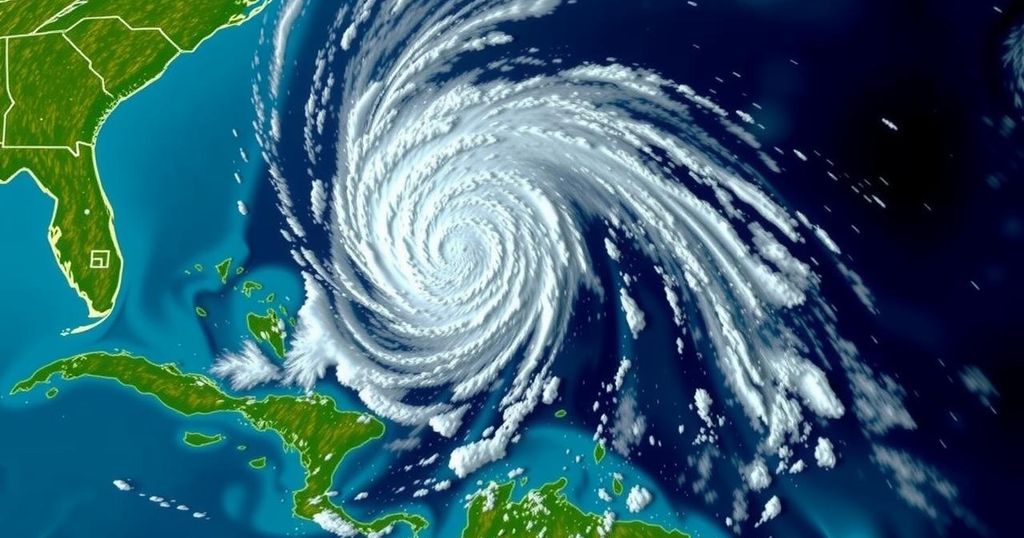Record-Breaking 2024 Atlantic Hurricane Season: Helene’s Devastation
The 2024 Atlantic hurricane season was marked by record activity, including 18 named storms and 11 hurricanes. Hurricane Helene became the deadliest storm in the U.S. since Katrina, causing over 150 fatalities. Meanwhile, Hurricane Milton resulted in severe flooding and tornadoes in Florida. This season highlighted advanced forecasting technologies that improved storm tracking, emphasizing the importance of preparedness as hurricane activity rises.
The 2024 Atlantic hurricane season, concluding on November 30, was characterized by extraordinary activity and severe repercussions. This season recorded a total of 18 named storms, including 11 hurricanes, with five categorized as major hurricanes. According to the National Oceanic and Atmospheric Administration’s (NOAA) Climate Prediction Center, the most notable storm, Hurricane Helene, made landfall on the Gulf Coast on September 26 as a Category 4 storm, marking itself as the deadliest hurricane in the U.S. since Hurricane Katrina, with over 150 reported fatalities and extensive flooding.
Following Helene, Hurricane Milton struck near Siesta Key, Florida, on October 9 as a Category 3 hurricane, resulting in 46 tornadoes and torrential rainfall in some regions, with certain areas accumulating over 15 inches of rain. NOAA has commended advancements in forecasting technologies that have allowed meteorologists to track and predict storms more effectively, using experimental tools such as enhanced cone graphics to provide timely alerts to coastal residents.
The hurricane season was notably active, with twelve storms forming before the typical peak in September, and seven hurricanes occurring after September 25, thereby establishing a new record. Climate scientists have associated the preceding lull and subsequent resurgence of storm activity to intense wind patterns over West Africa. Officials are calling upon communities to remain vigilant as NOAA continues to conduct research aimed at improving storm forecasting capabilities.
The 2024 Atlantic hurricane season has demonstrated unprecedented levels of storm activity, akin to past severe seasons. With climate change contributing to increased storm intensity and frequency, the 2024 season has underscored the importance of preparation and prompt response to natural disasters. Hurricane Helene’s devastating impact has served as a stark reminder of the ongoing risks posed by hurricanes, particularly to vulnerable coastal communities. NOAA’s advancements in forecasting and tracking technology reflect a growing commitment to public safety and disaster preparedness as climate patterns evolve.
In conclusion, the 2024 Atlantic hurricane season has been unprecedented in its scale and devastation, with Hurricane Helene emerging as the deadliest storm since Katrina, reflecting the tangible impacts of climate change. The significant advancements in forecasting capabilities emphasize the need for continued vigilance and preparedness among communities facing the threat of hurricanes. Ongoing research and development by NOAA are essential for enhancing future storm predictions and ensuring public safety.
Original Source: countryherald.com




Post Comment